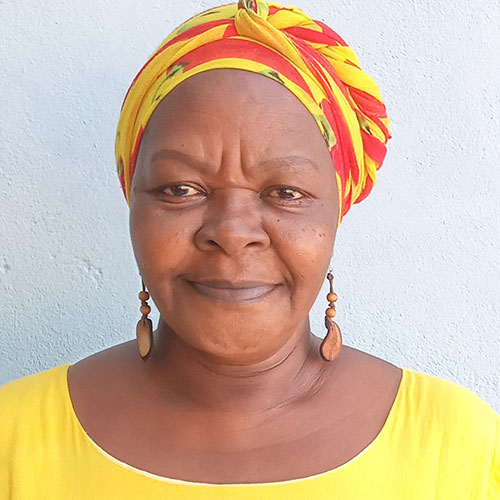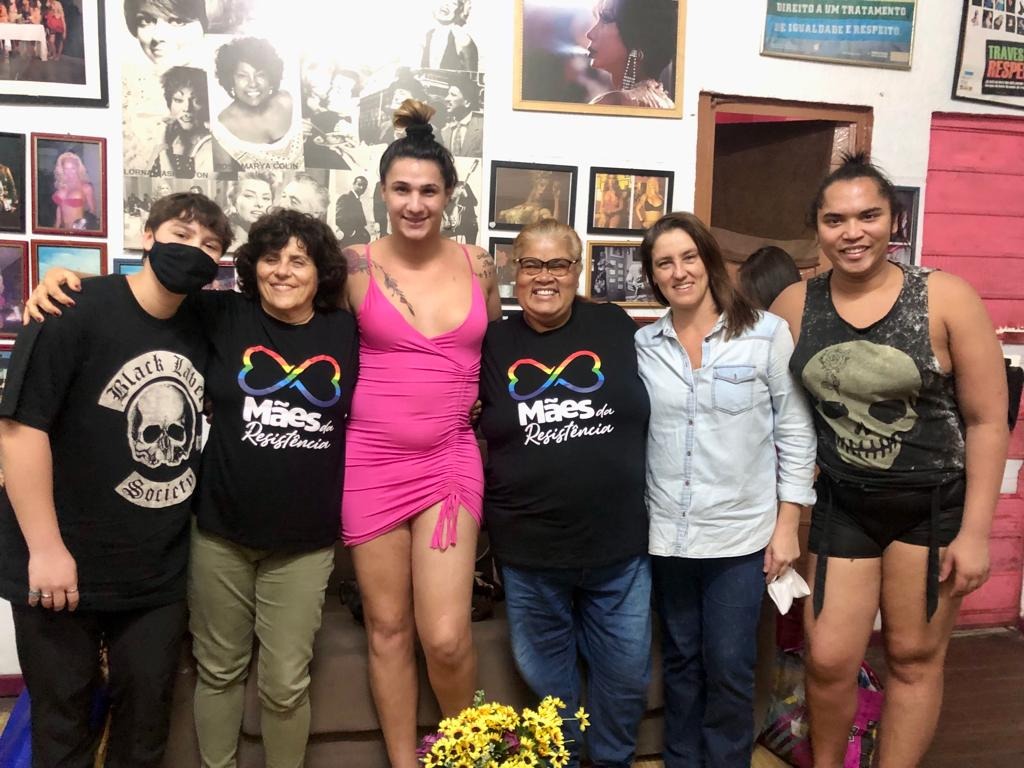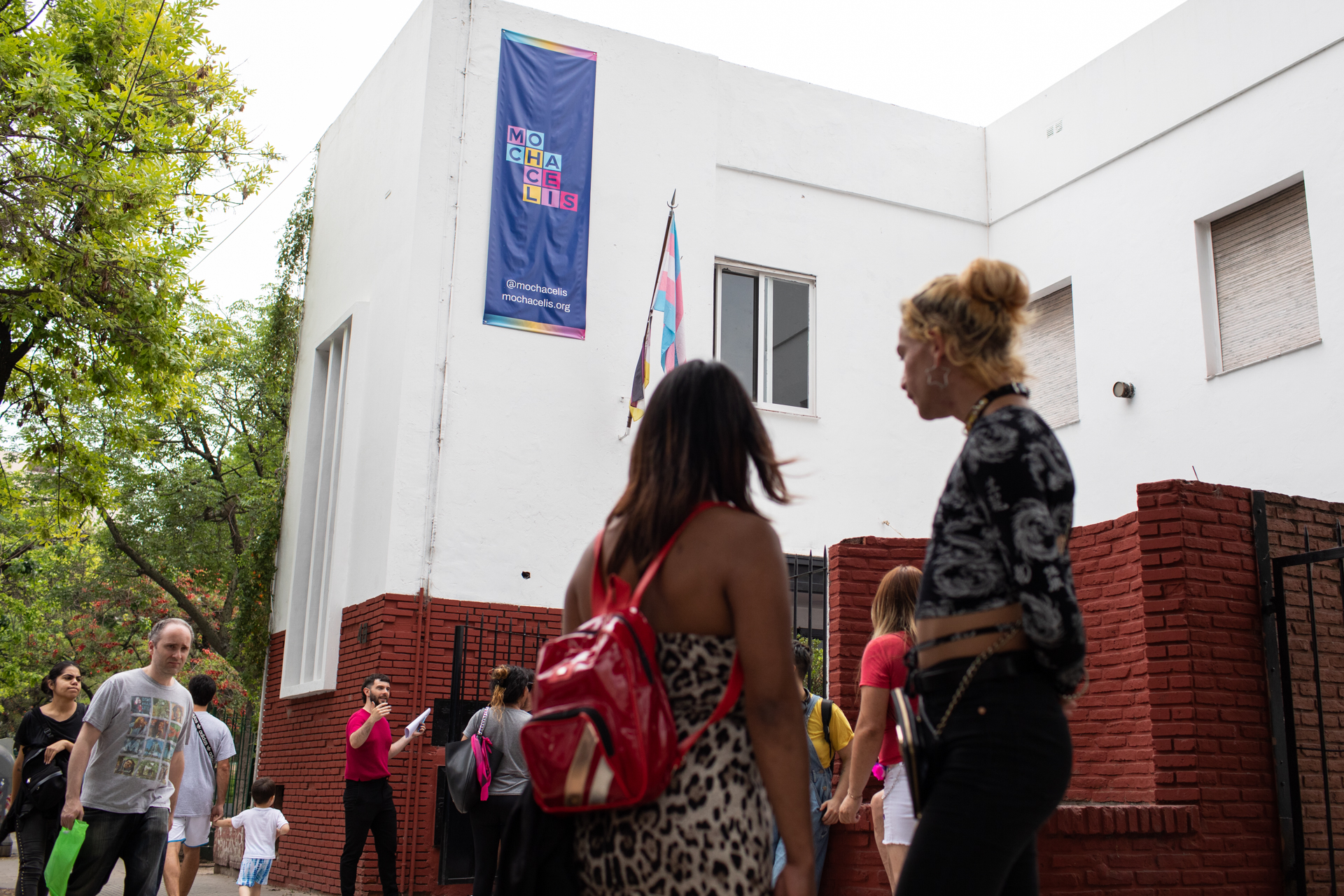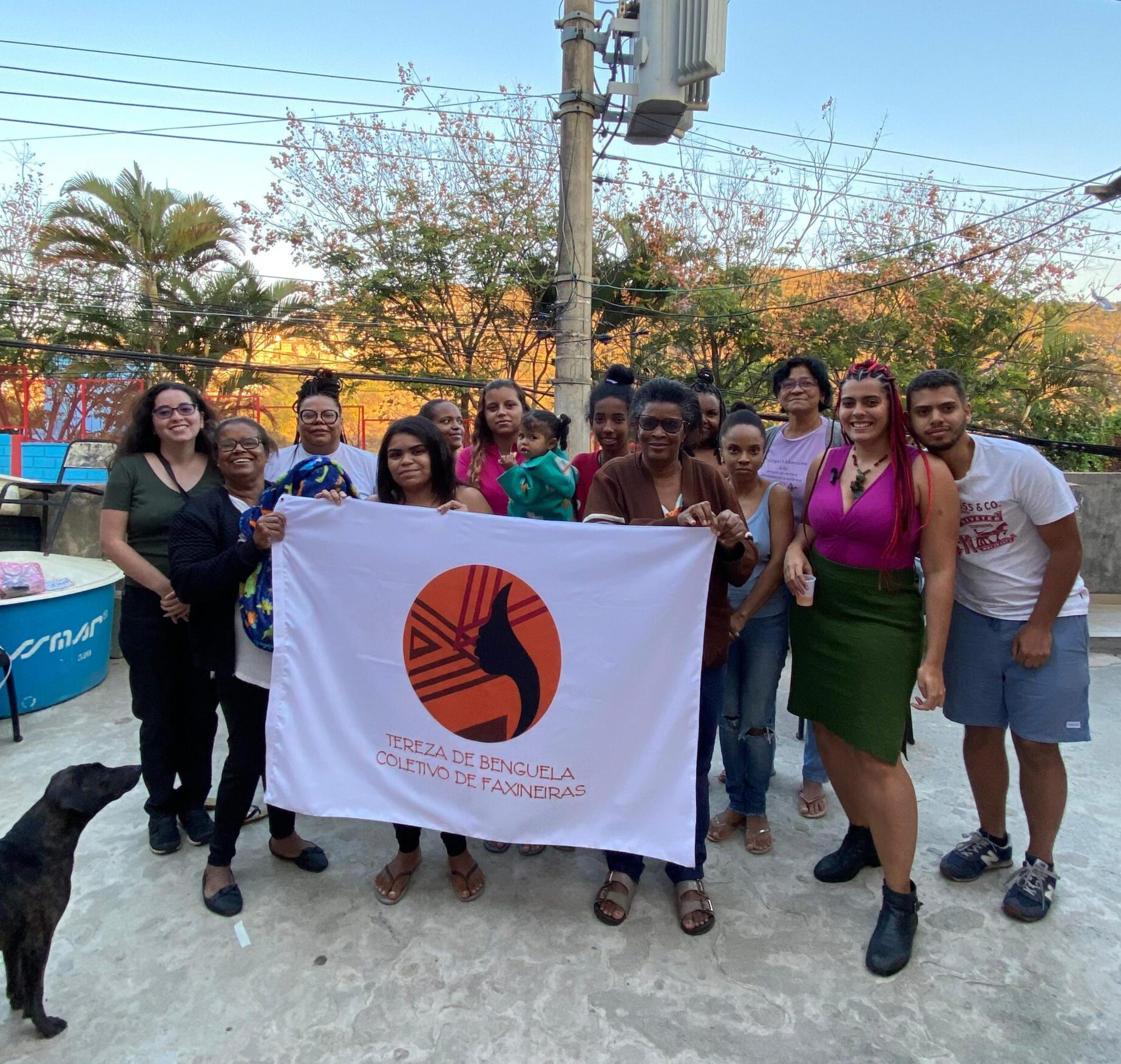Homeless people go shopping in a social project
The project consists of a common market stall; the difference is that customers do not pay for the chosen merchandise, but rather receive it as a donation
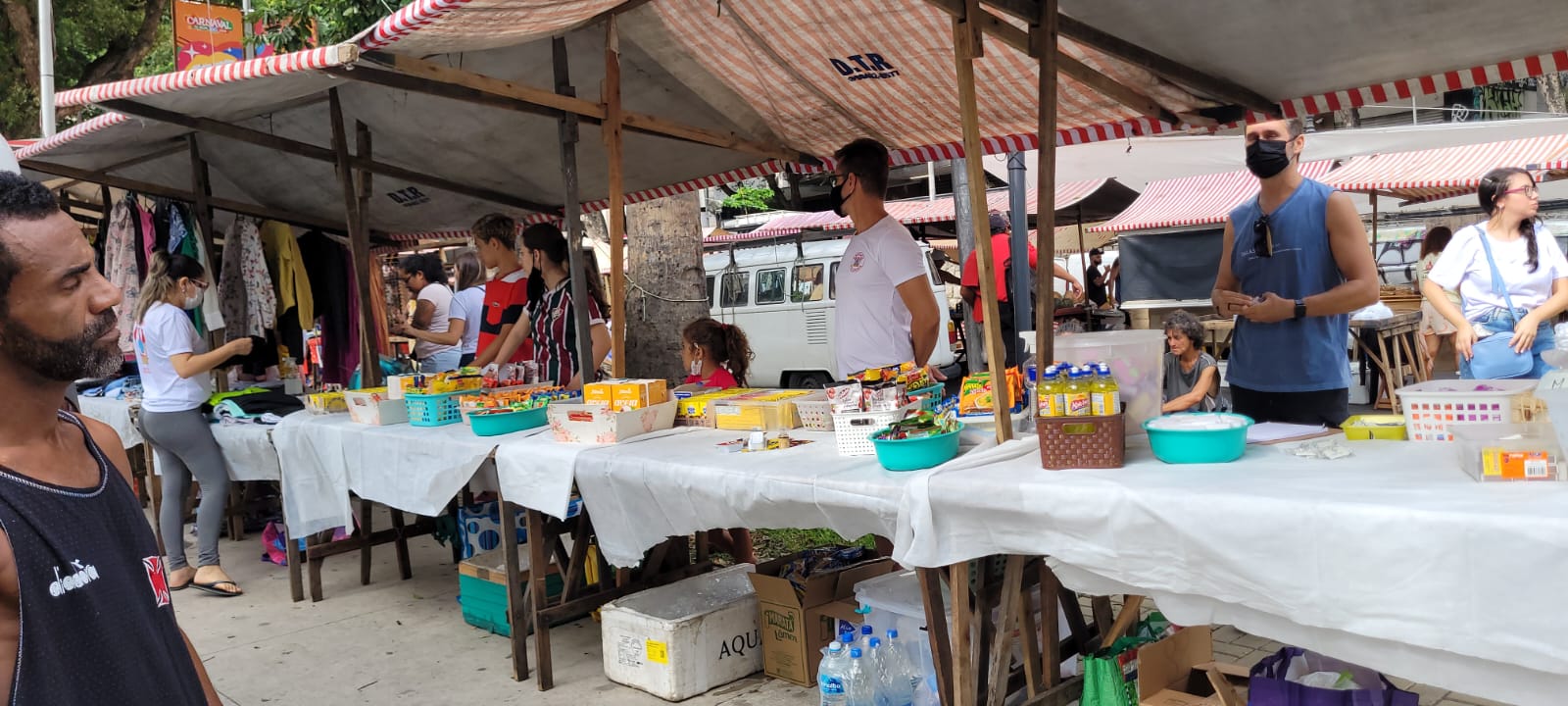
I arrived at the Barraca Solidária (‘Solidarity Booth’) very early, shortly after six in the morning. The organizers were not yet at the site, but the beneficiaries had already formed a line with unusual objects, such as shopping carts, children’s carts, tree branches, hats, and bags; in short, various artefacts composed that line, along with the people.
After walking a bit, I found out that the line was due to the sun, but when it came time for each person to pick up their number, they formed a neat and orderly line without confusion.
While waiting to interview the organizer, I spoke with Bruno, a 43-year-old from Rio de Janeiro, living on the streets and a fan of América, a football club. I asked him what the Barraca Solidária (‘Solidarity Booth’) represents: “a good thing, cool, and different.” Later, I could understand what Bruno meant.
Indeed, the project deserves all these adjectives. The organizers act in a very humane and respectful manner. It doesn’t matter the gender or appearance of the person being helped, whether they are permanently homeless or if they have a slightly better situation and even have a place to live.
Such is the case of Vitor, a 10-year-old whose dream is to go to school and one day become a soccer player, who lives with his mother and brother in the Ocupação Urbana Almirante João Cândido (‘Almirante João Cândido Urban Occupation’), in downtown Rio. Everyone is treated equally.
After the distribution of numbers, the recipients are invited to give their names, which are written down in a notebook, and then they go shopping, one at a time. Yes! The beneficiary freely chooses what they need among the items.
And, as it couldn’t be otherwise, there are also priorities such as wheelchair users, people with babies, someone who is feeling unwell, and others; these are attended to first.
Today, the project has three well-stocked stalls with breakfast items, fruits, juices, cookies, water, sweets, personal hygiene items, neatly organized clothes, candies, footwear, and much more. Everything is separated by category.
The Beginning of Solidarity Booth
Monica, founder and organiser of the project recounts how it all started: “Whenever I walked through the Glória neighbourhood, downtown Rio de Janeiro, I felt great anguish when seeing so many people living on the streets. I wanted to do something, but I felt powerless because I didn’t know how to help.
We started with distributing meals, and then, while talking to people at the neighbourhood market, the idea of the Barraca Solidária (‘Solidarity Booth’) came up.
Initially, we rented a stand and at the first event, we served 30 people. Over time, more volunteers joined, donations increased, and consequently, the number of people we could help also grew.”
On the day of this interview, the project brought smiles of satisfaction and joy to about 180 people.
During an interview with Coluna da Neuza (‘Neuza’s Column’), Rodrigo Cabral, a volunteer since the second edition of the Barraca Solidária (‘Solidarity Booth’), says that after the meal distributions, the work became consolidated, and the idea of creating the project emerged, which is now something permanent.
In addition to the collections they were already conducting, they are now exploring other options, such as raffles. They began raffling an Alexa device at the end of 2023, and recently, in partnership with Santa Tênis, whose owner is a volunteer, they raffled a 300.00 reais voucher, raising about a thousand reais.
Below are some testimonials from volunteers and beneficiaries of Solidarity Booth
Luísa, a transgender woman who dreams of having a home and stable job, is 46 years old. She left the streets five months ago and now lives in Lapa, downtown Rio. Luísa has been attending the Barraca for a long time, where she usually gets food and clothes.
Ana Clara, 15, and João Pedro, 12, say that their father convinced them to participate as volunteers, and now they go every month to help. They affirm that the event has a very big impact on them, who are participating, and even more so on the people who are benefited.
To conclude, Mônica says that the Barraca Solidária (‘Solidarity Booth’) is a response to the anxiety that she and the people accompanying her in the project felt when seeing other people in such an inhumane situation, such as homelessness.
Invitation
“Come and experience the project up close! It’s a very interesting experience to see the energy emitted by the volunteers and all this collective work. The immediate feedback we receive from those we assist shows that we make a difference in their lives. Everyone is welcome to come and learn about our work. Be a volunteer for a day at the Barraca, come take photos and participate.
Every donation will be greatly appreciated, no matter how small. Just to give you an idea, with 10 reais, it’s possible to buy a hygiene kit”.
How to help?
You can help by volunteering, donating food, clothes, shoes, personal hygiene items, household utensils, or any amount through Pix Key: barracasolidariarj.com.br
The Barraca Solidária (‘Solidarity Booth’) takes place every first Sunday of the month at the Glória Market, on the sidewalk in front of Praça Paris, from 08:00 to 10:00.
Follow the Solidarity Booth on social media
Like, follow, and share the Solidarity Booth’s profile on Instagram! For more information, please contact us via direct message.
